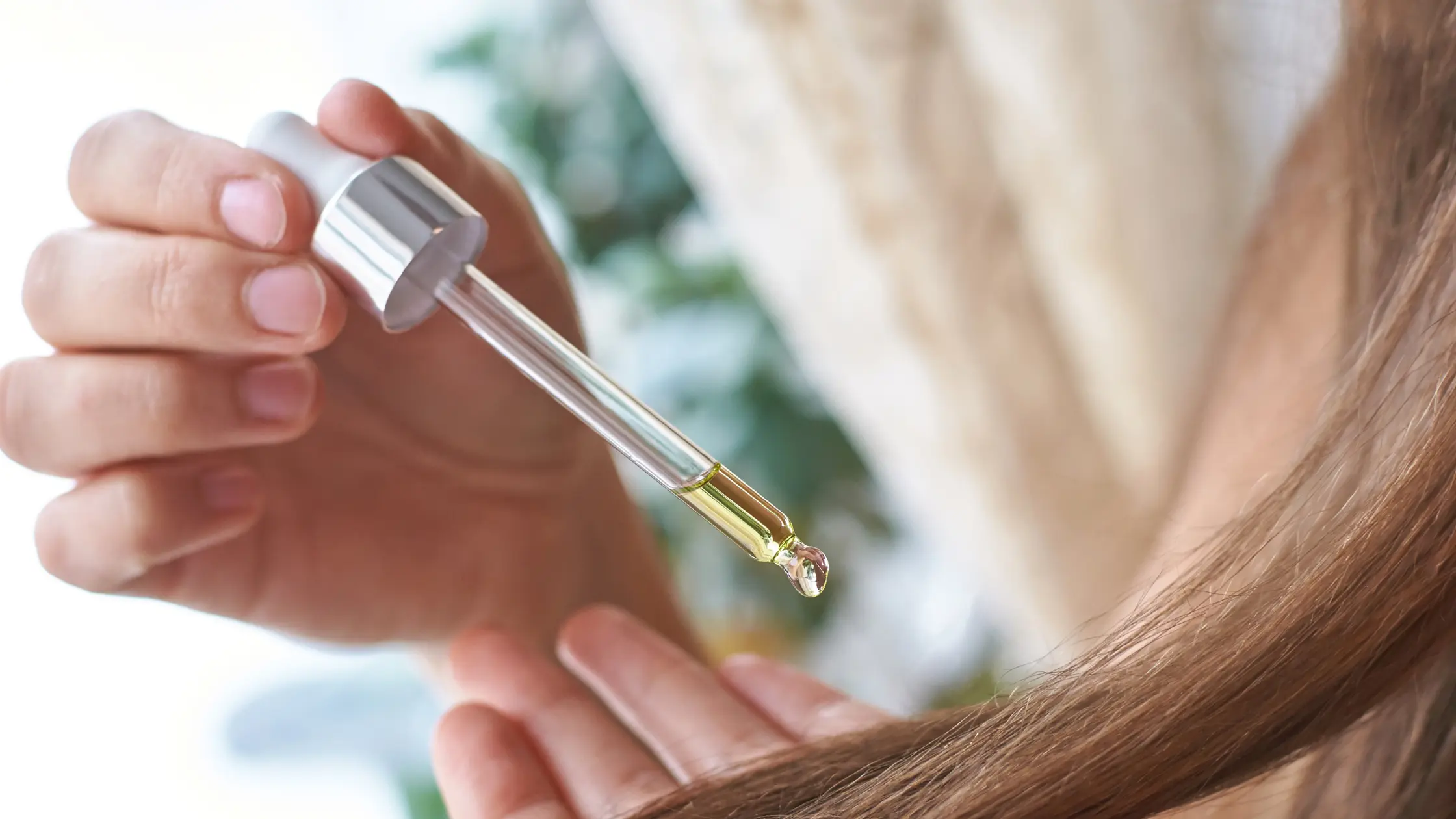As COVID-19 cases quietly make a resurgence across the globe, a not-so-quiet side effect is making headlines again, excessive hair fall due to COVID. While symptoms like cough and fatigue are commonly discussed, many women are shocked to find their hair thinning weeks or even months after recovering from the virus.
Let’s break down exactly why this happens, what it means for your hair health with the expert-backed tips to bring back your strands, stronger and glossier than ever.
Why COVID-19 Triggers Hair Fall?
Hair loss after COVID-19 is typically caused by a condition called telogen effluvium. It’s not permanent, but it can be extremely distressing. During periods of stress, illness, or fever, your body diverts energy from non-essential functions like hair growth to keeping you healthy. This pushes more hair follicles into the resting phase (telogen), which means they’ll fall out around 1–3 months later.
Signs You May Have COVID-Related Hair Fall
- Sudden hair shedding in large amounts, especially while brushing or shampooing
- A visible decrease in hair volume or thinning at the crown
- Shedding starting 2–12 weeks after recovering from COVID
Is This Hair Loss Permanent?
So you might be wondering, is this hair fall temporary or permanent? Don’t worry its a temporary recovery phase. COVID-induced hair fall is reversible. The good news is that hair usually begins to regrow within 3–6 months once the trigger (COVID/stress/fever) subsides.
Expert-Backed Tips To Regrow Hair After COVID Faster
So, you survived COVID (again), only to find your once-glorious mane pulling a vanishing act? Welcome to the club no one asked to join. Hair fall after COVID is very real But don’t worry, we’re not here to scare you. We’re here to help you bounce back, strand by strand, with science, sass, and smart tips.
Here’s how to fast-track your regrowth.
Eat Like Your Hair’s Life Depends On It, Because It Does
Hair is made of keratin, a protein. If your meals are low in protein, expect weak, slow regrowth. Include lentils, sprouts, tofu, eggs, Greek yogurt, nuts and seeds in your daily diet. Biotin supports keratin production that is why you see so it recommended as a hair growth supplement. You can also consume biotin rich leafy vegetables to strengthen your immune system and trigger faster hair regrowth.
Iron + Zinc = Regrowth Combo
Even mild deficiencies can worsen shedding. A multivitamin or food sources like spinach, pumpkin seeds, and dates can restore balance. Consult your doctor but it works out then include an iron supplement and zinc supplement.
Consider DHT Blocking Shampoo
DHT-blocking shampoos can prevent androgenic damage. Choose a shampoo free of sulfates, parabens, and alcohol this would cause minimal damage and DHT blockers in your shampoo will prevent you from losing more hair. Look for ingredients like peptides, caffeine, saw palmetto, aloe vera and rosemary to control your hair fall and regrow your hair faster.
We recommend:
- Svvimer Hair Growth Shampoo: Formulated for thinning hair and hair loss concerns, this shampoo not only targets your postpartum hair loss but also soothes your itchy scalp while promoting hair growth. It is loaded with the goodness of rosemary, mint, tea tree oil and biotin.
- L’emarie Strengthening & Thickening Hair Growth Shampoo: Its infused with biotin and has DHT blocker which helps to control hair fall while strengthening your hair from its roots.
Oil It Like You Mean It
Apply 2–3 drops of rosemary essential oil mixed with a tea spoon of jojoba or castor oil. Or you can try this hair oil by Vegan Mia that is loaded with goodness of rosemary, jojoba oil, castor oil, cedarwood essential oil, thyme essential oil, lavender essential oil and argan oil, all in one, twice a week as a pre poo treatment and follow it up with 10 minutes of gentle scalp massage to improve blood flow and promote follicle activity. This will not only strengthen your hair from within but also nourish your scalp.
Don’t Ignore Scalp Health
A healthy scalp makes a healthy base for your hair to grow and flourish. So while dealing with hair fall, always make it a priority to keep your scalp healthy. If you have dandruff or dry scalp, use anti-dandruff shampoos that nourish your scalp because dandruff may cause hair loss.
Oil your scalp and hair twice a week and avoid shampoos with sls, parabens, mineral oils or artificial fragrance. You can also try scalp facials or incorporate scalp serum or anti-hair fall serum in your routine.
Make Hair Rinses An Integral Part Of Your Regime
Hair rinses have an immense power to transform your hair and scalp health and to regrow lost hair. Make rosemary water or fermented rice water rinse a part of your regime.
Hair Masks To The Rescue
Use hair masks that are loaded with protein, nourishing oils and anti-hair fall ingredients. You can try fenugreek and aloe vera hair mask, coconut oil and aloe vera hair mask or an egg hair mask. Apply it once a week after every hair wash.
Be Gentle To Your Hair
While you are already dealing with covid induced hair loss, avoid tight hairstyles, excessive brushing, or heat tools. Switch to silk pillowcases and protect your hair while sleeping. Let your hair breathe and recover.
Stress Management = Hair Management
Chronic stress extends the telogen phase. Try guided meditation, yoga, evening walks, herbal teas like chamomile and sleep atleast 8 hours a day. Resting well and staying positive has a positive effect on your hair.
Your Hair Will Bounce Back, Trust The Process
Losing clumps of hair after COVID is scary, but it’s also temporary and treatable. While dealing with covid and weak immunity, don’t stress too much on hair fall. Don’t be too hard on yourself. With the right care, your hair can and will return to its healthy, vibrant self.
Updated for 2025 by our in-house hair care team. Always consult your physician for personalized advice.








